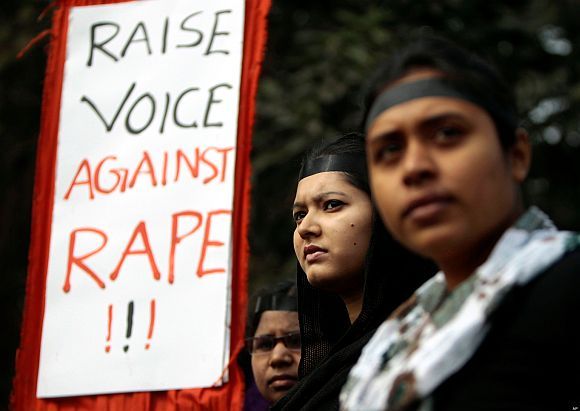The Bombay high court on Monday commuted the death penalty of two convicts in the 2007 Pune BPO gang-rape and murder case to "life term for a period of 35 years" on the grounds that there had been an inordinate delay in executing them.

Purushottam Borate (38) and Pradeep Kokade (32) were to be executed on June 24, but the high court had said on June 21 that the execution should not take place until further orders.
A division bench of Justices B P Dharmadhikari and Swapna Joshi on Monday allowed the petitions filed by the convicts seeking a stay on the execution of their death warrant.
"We find that the delay in executing the death penalty in the present case was undue, inordinate and unreasonable," the court said in its judgment.
It added that the delay could have been avoided if the mercy petitions and the final execution were dealt with some sense of urgency.
"We find that there has been undue and unexplained delay by both the state and Central government in processing the mercy petitions," the court said.
"Here we have to consider a case of two convicts who have to be hanged. When the protection of Article 21 of the Constitution of India (Right to life and personal liberty) is at stake then the Executive, Court of Law or the Governor and President of India stand at the same pedestal," the court said.
Thus, delay by any arm of the state or the Central government would be against the fundamental rights of the convicts, it added.
"It is clear that the actual execution of the death penalty is at the hands of the state government. The state government has to fix a date and obtain death warrant," the judgment said.
Thus, merely writing letters to the sessions court seeking for a date to be fixed for execution of the death penalty cannot be seen as compliance, it added.
"In such a situation, we commute the death penalty to life term for a period of 35 years considering the time already spent by the petitioners in jail," the court said in its judgement.
The bench also berated the government for using old age methods like telegram and express letters for communication.
"We are in the 21st century and in this digital era, not resorting to devices such as email and telephones would be to deliberately delay the exercise or derail it," the court said.
The bench also noted that the convicts were kept in solitary confinement from 2012.
The convicts' lawyer, Yug Chaudhary, told reporters the court had said in the judgement that the duo should be in prison for a period of 35 years after taking into account the time already spent in jail and remission.
On November 1, 2007, a Wipro BPO employee, who was then 22-year-old, got into the regular cab contracted by the company to report for her night duty in a Pune suburb.
Cab driver Borate, accompanied by his friend Kokade, changed the route and took her to a remote place, where they raped and strangled her with her dupatta. They also disfigured her face.
The duo was convicted and awarded death penalty by a sessions court in March 2012 for kidnapping, raping and murdering the woman.
In September 2012, the high court confirmed the punishment and the verdict was upheld by the Supreme Court in May 2015.
The Maharashtra governor and the President had rejected their mercy petitions in 2016 and 2017, respectively.
On April 10, a sessions court in Pune issued warrants setting June 24 as the date of execution.
In the petitions filed in May, the duo sought a stay on the ground that there had been inordinate delay in deciding their mercy petitions by the Maharashtra governor and the President, and also in issuance of the warrants for execution of the death penalty.
"Excessive and unexplained delay of over four years (1,509 days) in execution of the sentence of death causes unnecessary and unavoidable pain, suffering and mental torment that constitutes cruel and unusual punishment violative of Article 21 (right to life)," they said in the petitions.
The state government, seeking dismissal of the petitions, had said that while considering the rights of the convicts, the rights of the victim's family and the collective conscience of the society would also have to be kept in mind.











 © 2025
© 2025